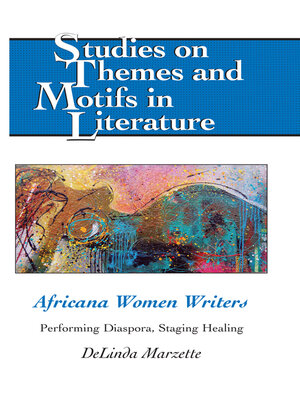Africana Women Writers
ebook ∣ Performing Diaspora, Staging Healing · Studies On Themes and Motifs In Literature
By Horst Daemmrich

Sign up to save your library
With an OverDrive account, you can save your favorite libraries for at-a-glance information about availability. Find out more about OverDrive accounts.
Find this title in Libby, the library reading app by OverDrive.



Search for a digital library with this title
Title found at these libraries:
| Library Name | Distance |
|---|---|
| Loading... |
Africana Women Writers: Performing Diaspora, Staging Healing focuses on contemporary literary works, plays in particular, written after 1976 by Africana women writers. From a cross-cultural, transnational perspective, the author examines how these women writers – emanating from Cameroon (Nicole Werewere Liking), Britain (Winsome Pinnock), Guadeloupe (Maryse Condé and Simone Schwartz-Bart), Nigeria (Tess Onwueme), and the United States (Ntozake Shange) – move beyond static, conventional notions regarding blackness and being female and reconfigure newer identities and spaces to thrive. DeLinda Marzette explores the numerous ways these women writers create black female agency and vital, energizing communities. Contextually, she uses the term diaspora to refer to the mass dispersal of peoples from their homelands – herein Africa – to other global locations; objects of diasporic dispersal, these individuals then become a kind of migrant, physically and psychologically. Each author shares a diasporic heritage; hence, much of their subjects, settings, and themes express diaspora consciousness. Marzette explores who these women are, how they define themselves, how they convey and experience their worlds, how they broach, loosen, and explode the multiple yokes of race, class, and gender-based oppression and exploitation in their works. What is fostered, encouraged, shunned, ignored – the spoken, the unspoken and, perhaps, the unspeakable – are all issues of critical exploration. Ultimately, all the women of this study depend on female bonds for survival, enrichment, healing, and hope. The plays by these women are especially important in that they add a diverse dimension to the standard dramatic canon.







